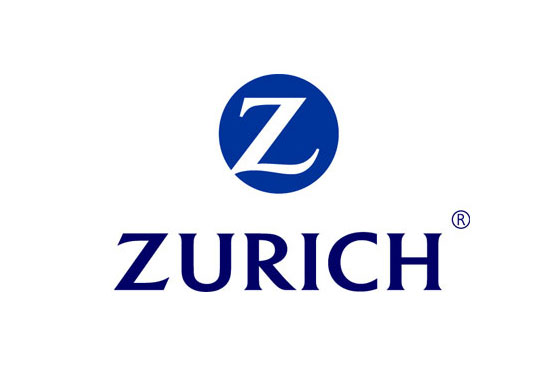Consider a debt for vaccines program (Breakingviews)
This article has been sent to us by the co-author, William Rhodes, an esteemed opinion leader and friend of LATCAM. The other co-author, Dr. Cristina Valencia, is an epidemiologist and consultant with the World Health Organization (WHO).
MARCH 9, 20214:13 PM
Breakingviews – Guest view: Consider a debt for vaccines program
By William Rhodes, Cristina Valencia
NEW YORK (Reuters) – Almost a year after the start of the Covid-19 pandemic, infections continue to increase in much of the world and especially in Latin America and the Caribbean, where the consequences are already counted in economic, social and political terms. After a race to obtain approval for vaccines worldwide, the focus is on this region, where there is concern that the vaccine may not reach the entire population due to factors such as cost and logistics.
The World Bank predicts that the economies of the region will have accumulated losses of $1.2 trillion in 2020. This means that many countries will have to resort, in the short term, to recurring debt to finance the vaccination programs for their citizens. Pragmatic debt exchange models will be essential if the costs to the region’s governments are to be managed.
Currently, 58.7 million people over 65 years of age live in Latin America and the Caribbean. To vaccinate only this age group, providing two doses to each person, within the span of a full calendar year, the countries of the region would collectively need to vaccinate 321,376 people per day. As of March 1, Our World in Data reports that the countries of the region have collectively administered an average of 3.1 doses per 100 people. These efforts, however, are still concentrated in only a few countries in the region.
Compared to richer countries, most Latin American and Caribbean countries (with the exception of Chile) have not been able to secure enough vaccines to cover their entire population, a fact that becomes more evident when those purchases are restricted only to vaccines that are currently licensed.
It is important to note that buying vaccines is not just a matter of the initial cost of the doses. Contract negotiations require many challenging agreements, including the allocation of risk regarding liability for vaccine side effects, as well as how the companies will be contracted and the logistics for delivery services. The ability to buy large stocks of vaccines in advance ensures that wealthier countries have earlier access to vaccines, given the limited global manufacturing capacity to produce them. Argentina, Brazil and Mexico have recently signed contracts to manufacture vaccines in the region.
Undoubtedly, the cost of the vaccine has risks and benefits for countries that seek to reactivate their economies as rapidly as possible. The Inter-American Development Bank has announced that it will mobilize $1 billion to help the countries of Latin America and the Caribbean acquire and distribute vaccines against Covid-19. These funds will complement the $1.2 billion in resources the IADB committed in 2020. This, however, will not suffice, and more innovative approaches, such as “debt for vaccines” are needed.
The use of debt to purchase vaccines will vary greatly across the region, from the number of vaccines included in national programs to the prioritization of funds to deliver them. The “debt for vaccines” model is based on the notion that by converting outstanding debt, capital is retrieved, which can then be mobilized to implement vaccination campaigns and to purchase external assistance for the purchasing of jabs.
Here’s how it might work. A holder of U.S dollar debt with a par value of $100, but a market value of $70 is willing to contribute that debt to the debtor country in exchange for the country’s using local currency in an amount equal to plus or minus $70 to acquire vaccines. The debt contributed is in effect redeemed in local currency at a discount and discharged in full. A pharmaceutical company agrees to sell vaccines to the country (only at a discount) in exchange for the local currency amount that the country has agreed to pay to redeem the debt contributed to it.
The pharmaceutical company either keeps the local currency for approved productive investment in the country or sells it for U.S dollars to a third-party investor to be used to invest in a project approved by the country. In the end, the debtor country has prepaid its debt in local currency at a discount, the amount prepaid is used to acquire vaccines for the country at no additional cost and the local currency is reinvested in the country or retained by the pharmaceutical company for later use or in a sale to a third party.
Programs, such as this, which help reduce current currency mismatches in vaccine distribution, may be effective approaches to reduce the need for “new money” while at the same time alleviating the current balance sheet with unsustainable “old money” of Latin American countries. Although these debt exchange programs have been used in various developing markets, primarily under the umbrella of “debt for development” and “debt for nature,” risk considerations and possible drawbacks for the various parties need to be considered.
Entities like the World Bank and IADB, among others, have developed their own programs to support the countries’ purchases of vaccines, but they will not be enough. An urgent call needs to be made to pharmaceutical companies to adopt this debt for vaccines model in order to provide the governments of the region with the necessary quantities of the vaccine needed to put a stop to this pandemic. More importantly, this needs to be done in a fast and efficient manner as the rise of new variants of the virus can create constraints to successful vaccination campaign rollouts.
If the “debt for vaccines” model proves to be successful among the Latin American countries, it can be further replicated and used in other developing countries around the world.
Reuters Breakingviews is the world’s leading source of agenda-setting financial insight. As the Reuters brand for financial commentary, we dissect the big business and economic stories as they break around the world every day. A global team of about 30 correspondents in New York, London, Hong Kong and other major cities provides expert analysis in real time.
Sign up for a free trial of our full service at https://www.breakingviews.com/trial and follow us on Twitter @Breakingviews and at www.breakingviews.com. All opinions expressed are those of the authors.










